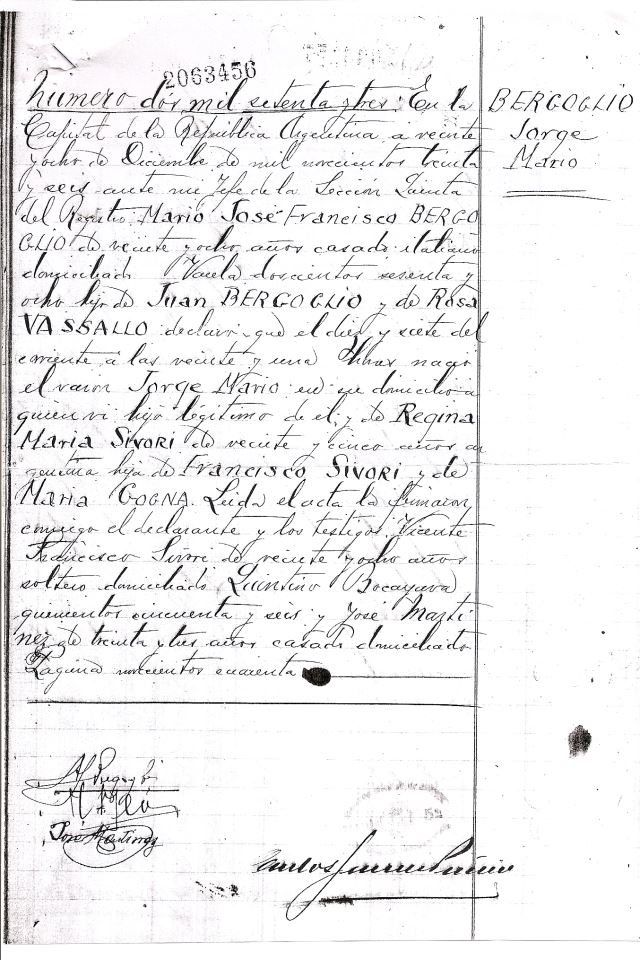| ||||||||||||||||||||||||||||||||||||||||||||
|
| ||||||||||||||||||||||||||||||||||||||||||||
 | ||||||||||||||||||||||||||||||||||||||||||||
Western Astrology and the Vedic Tradition – sisters under the skyIndex to past articles Over 80 astrological articles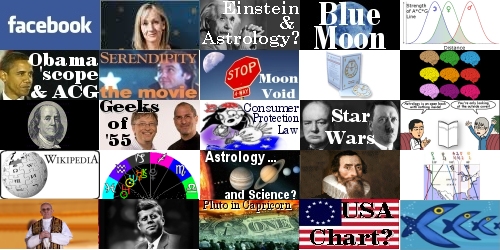
Robert Currey receiving a Lifetime Achievement Award in Kolkata, India 2016 from organiser Gopal Bhattercharjee. Sharon Knight winner of Astrologer of the Year 2016, crowned by 2015 winner Alex Trenoweth. Astronomers still confuse signs with constellationsOh dear! A few astronomers are still confusing the twelve 30° Signs of the Zodiac with the Constellations of the Zodiac! Here's a quote from Scientific American: Here's a quote from Scientific American: "One of the differences between astronomy and astrology is that astronomy uses the current positions of the sun and planets in the sky, while astrology uses historical positions which have been out-of-date for thousands of years." To anyone who knows what astrology is, this comment is plainly nonsense. Journalists should not write about subjects they don't understand, but before publishing criticism, they should do some fact checking. I have posted a detailed response to Scientific American and on other websites where this article has been recycled - but so far I have had no correction from the author. (If you agree with or like my first post March 21 at 11.10 - on space.com - please click like underneath on space.com ~Robert Currey Computer genius entrepreneurs of 1955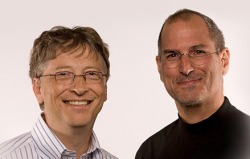 Walter Isaacson, Steve Jobs's biographer describes his magical thinking and his ability to connect poetry and artistry to technology. In an interview with the BBC Isaacson describes an "attention within him between the alternative, hippyish, romantic, poetic, new age guy and the scientific technology guy." What drives this combination in Steve Jobs's chart? Walter Isaacson, Steve Jobs's biographer describes his magical thinking and his ability to connect poetry and artistry to technology. In an interview with the BBC Isaacson describes an "attention within him between the alternative, hippyish, romantic, poetic, new age guy and the scientific technology guy." What drives this combination in Steve Jobs's chart? Bill Gates, Steve Jobs, Tim Berners-Lee and others were all born within 12 months (1955). Why?  Malcolm Gladwell, author of Outliers accounts for this phenomenon with developments in computers that streamlined software programming in the late '60s. Gladwell is persuasive, but why did the graph of computer geniuses spike between Nov 1954 to Oct 1955? [see article] Malcolm Gladwell, author of Outliers accounts for this phenomenon with developments in computers that streamlined software programming in the late '60s. Gladwell is persuasive, but why did the graph of computer geniuses spike between Nov 1954 to Oct 1955? [see article]
 Can Astrology be labelled as Divination?The question might as easily be: Can astrology be labelled under any term? Astrology is one of the most difficult fields to classify. It does not fit neatly into religion or psychology or philosophy or therapy or science or divination, but overlaps in all those fields. Astrologers cannot agree if it is an art or a craft. Divination is a part of astrology, but does this term describe the entire field of astrology?Halo around the MoonJust over three thousand years ago, the Babylonians conducted empirical research into astrology that lasted over a thousand years. In a materialistic sense, they had even less idea what they were recording than we know today. Yet, they meticulously built up a database of planetary and stellar movements and positions, market prices, water levels, weather, earthquakes, political or unusual events.When I read that these ancient stargazers (wise men) warned the Mesopotamian King if ever there was a halo around the Moon - I smiled - how primitive! - it's nothing more than the refraction of moonlight passing through ice crystals in the upper atmosphere. But then late last evening, I was stunned by the sight of Jupiter next to a bright almost full Moon in the night sky surrounded by a large clear circle. I sensed that I should have more respect for their science and not limit myself entirely to the simplest superficial explanation without considering wider and deeper implications as well. ~Robert Currey [Photo credit to Timo Kuhmonen. The camera in my phone could not do justice to the view. Also thanks to Joanne Alison for her Babylonian input.] Biography Charles Harvey (1940 - 2000) - one of the most inspiring & influential astrologers of the late 20th century. His obituary in the Guardian described him as "a tireless ambassador for astrology ... frequently called on to deal with astrology's bad reputation." (1940 - 2000) - one of the most inspiring & influential astrologers of the late 20th century. His obituary in the Guardian described him as "a tireless ambassador for astrology ... frequently called on to deal with astrology's bad reputation."
Obama 'scope & Astro*Carto*Graphy For more on Barack Obama's Horoscope & why he has connections with places like Cairo and problems in DC. Obama's Astro*Carto*Graphy map. For more on Barack Obama's Horoscope & why he has connections with places like Cairo and problems in DC. Obama's Astro*Carto*Graphy map. |
Were the Babylonians Scientists?Recently, a critic of astrology, Philip Ball argued that the Babylonian stargazers who were also the original astrologers should not be considered scientists. He advanced three arguments: 1. They never sought a mechanism. 2. Their motives were not to understand the cosmos, but practical and political for the king. 3. Their model was faulty.For over a thousand years BCE, the scholars of Mesopotamia in various civilizations (Babylonian, Assyrian etc) observed the heavens and meticulously collected the data in Menologies or diaries on fired clay tablets. From this database they developed mathematical and astrological theories. They applied the same rigour to their mathematics, their astronomical theories and to astrology.  This is the earliest known empirical experiment conducted on a huge scale and the results in terms of mathematics, time-keeping, agriculture and even in psychology and religion still have a huge impact on our lives.
This is the earliest known empirical experiment conducted on a huge scale and the results in terms of mathematics, time-keeping, agriculture and even in psychology and religion still have a huge impact on our lives. Their mechanism was that the planetary movements were the expression of gods with human or animal-like qualities. This was perfectly reasonable at the time, given the limited information that was available. It is the same today when most people subscribe to a mechanism in the Universe of meaningless and purposeless physical forces. This model may well prove to be misguided by future generations. Long after the Babylonians, astrology remained a stimulus for scientific advance. Johannes Kepler discovered his third law through a quest for a harmonious pattern in the solar system based on astrology and Newton learnt geometry through a text book on astrology. I believe that those who still take astrology seriously are upholding the ancient Babylonian tradition. A scientific approach to modern astrology would be to take the claims of serious astrologers seriously and to investigate them with an open mind before drawing a conclusion. Good scientific practice requires a spirit of inquiry and critical thinking rather than follow accepted wisdom without investigating the ongoing research. The Titanic & the Supermoon RMS Titanic Discover how a Super Moon contributed to the sinking of the Titanic & the chart for the exact time of the launch. RMS Titanic Discover how a Super Moon contributed to the sinking of the Titanic & the chart for the exact time of the launch.
Astrology: the case & evidence When a popular physicist on a BBC TV science series claims that 'astrology was complete rubbish' without a shred of evidence, it's time to set the record straight. Here's my response ... When a popular physicist on a BBC TV science series claims that 'astrology was complete rubbish' without a shred of evidence, it's time to set the record straight. Here's my response ... Kepler's Astrology Johannes Kepler, (1571 -1630) German astrologer, astronomer and mathematician is best known for his Laws of Planetary Motion. Though some claim that his practice of astrology was to 'pay the bills' or that he was a rational sceptic who wished to demolish astrology, new evidence shows that Kepler was a sceptical astrologer who had a deep personal interest in astrology and enhanced astrology by adding 3 new aspects (angles).
Galileo's Telescope Those who dismiss astrology without examining the evidence may learn something from the philosophy professors who refused to look through Galileo's telescope. Some sceptics fear discovering evidence that will undermine their world-view. Those who dismiss astrology without examining the evidence may learn something from the philosophy professors who refused to look through Galileo's telescope. Some sceptics fear discovering evidence that will undermine their world-view.Myth of Tests disproving Astrology A popular myth repeated in websites is that astrology has failed in 'thousands of tests'. In fact, there is not one valid scientific test where astrology has not shown positive results.
Randi Millionaire Trick A sceptic recently suggested that I attempt to claim the million dollar prize offered by James Randi ‘Educational’ Foundation for showing evidence of powers that cannot be explained by known scientific laws. Here's a few good reasons why I would never consider it... A sceptic recently suggested that I attempt to claim the million dollar prize offered by James Randi ‘Educational’ Foundation for showing evidence of powers that cannot be explained by known scientific laws. Here's a few good reasons why I would never consider it...
Why was astrology marginalised? Why isn’t astrology part of the mainstream thought and education? Why are so many, otherwise rational people so irrational in condemning it? Over 500 years astrology moved from being central to the academic system to being outcast from mainstream thinking. It comes down to the history of astrology and how slow astrologers have been to adapt to the crises caused by advances in our knowledge and philosophy. [more ...]
Why isn’t astrology part of the mainstream thought and education? Why are so many, otherwise rational people so irrational in condemning it? Over 500 years astrology moved from being central to the academic system to being outcast from mainstream thinking. It comes down to the history of astrology and how slow astrologers have been to adapt to the crises caused by advances in our knowledge and philosophy. [more ...]
Bias masquerading as scepticism I was taught that the scientific process started with a question which was then researched. Then a hypothesis was constructed and tested with an experiment. The data was then analyzed and a conclusion reached. Many top scientists seem to feel that they can bypass this method in fields like astrology at which they are not experts. How serious is this lapse of professionalism and does this negligence go to the very top? I was taught that the scientific process started with a question which was then researched. Then a hypothesis was constructed and tested with an experiment. The data was then analyzed and a conclusion reached. Many top scientists seem to feel that they can bypass this method in fields like astrology at which they are not experts. How serious is this lapse of professionalism and does this negligence go to the very top?Scientific Proof of Astrology? The Sunday Times Science Editor reviews Percy Seymour's book under the heading "The Planets may control your future after all". The heading shows a common misunderstanding of astrology, but the article is very interesting. The Sunday Times Science Editor reviews Percy Seymour's book under the heading "The Planets may control your future after all". The heading shows a common misunderstanding of astrology, but the article is very interesting.
Social and Anti-Social Networking.
more ...
![Chart Wheel for founding of Facebook [Time unknown]](https://www.astrocartography.co.uk/pix/wheels/FBwh.gif) |
Recent Talks on Astro*Carto*Graphy by Robert CurreyCovent Garden, London at the Astrology Student Conference. June 2016
8th International Conference of Astrology. Sala dei Notari, Perugia, Italy: July, 2016 

Equinox Astrology on Facebook
Tweets by @RobertCurrey Was Sibly's legendary USA chart wrong?
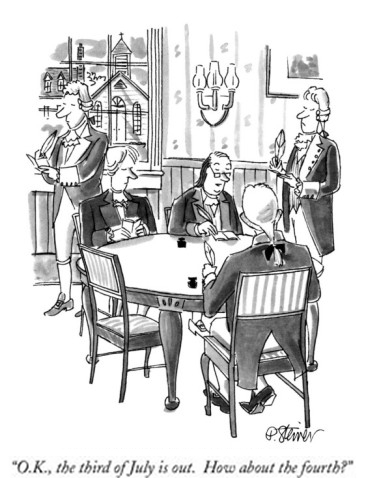
Was CSCIOP scientific and is CSI sceptical? Committee for Scientific Investigation of Claims of the Paranormal is the world's oldest and arguable largest sceptical organisation and publisher of the Skeptical Inquirer. The name CSICOP was a misnomer from the start. Scientific investigation was officially dropped early on. This was after the debacle when, to their consternation, their attempt to debunk psychologist, Michel Gauquelin replicated his results which favoured astrology. CSICOP's questionable methods and attempts to cover-up the evidence were exposed by a whistle-blower in their senior ranks. But CSICOP (now renamed CSI) has been behind other attempts to debunk astrology such as the Carlson Test (1985) and the work of CSICOP fellow Geoffrey Dean and others. more ... Committee for Scientific Investigation of Claims of the Paranormal is the world's oldest and arguable largest sceptical organisation and publisher of the Skeptical Inquirer. The name CSICOP was a misnomer from the start. Scientific investigation was officially dropped early on. This was after the debacle when, to their consternation, their attempt to debunk psychologist, Michel Gauquelin replicated his results which favoured astrology. CSICOP's questionable methods and attempts to cover-up the evidence were exposed by a whistle-blower in their senior ranks. But CSICOP (now renamed CSI) has been behind other attempts to debunk astrology such as the Carlson Test (1985) and the work of CSICOP fellow Geoffrey Dean and others. more ...
| ||||||||||||||||||||||||||||||||||||||||||
|
||||||||||||||||||||||||||||||||||||||||||||




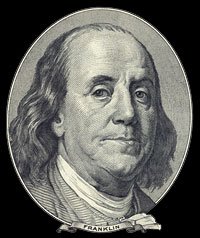 "Astrology is one of the most ancient Sciences, held in high esteem of old, by the Wise and the Great. Formerly, no Prince would make War or Peace, nor any General fight in Battle, in short, no important affair was undertaken without first consulting an Astrologer.
"Astrology is one of the most ancient Sciences, held in high esteem of old, by the Wise and the Great. Formerly, no Prince would make War or Peace, nor any General fight in Battle, in short, no important affair was undertaken without first consulting an Astrologer.